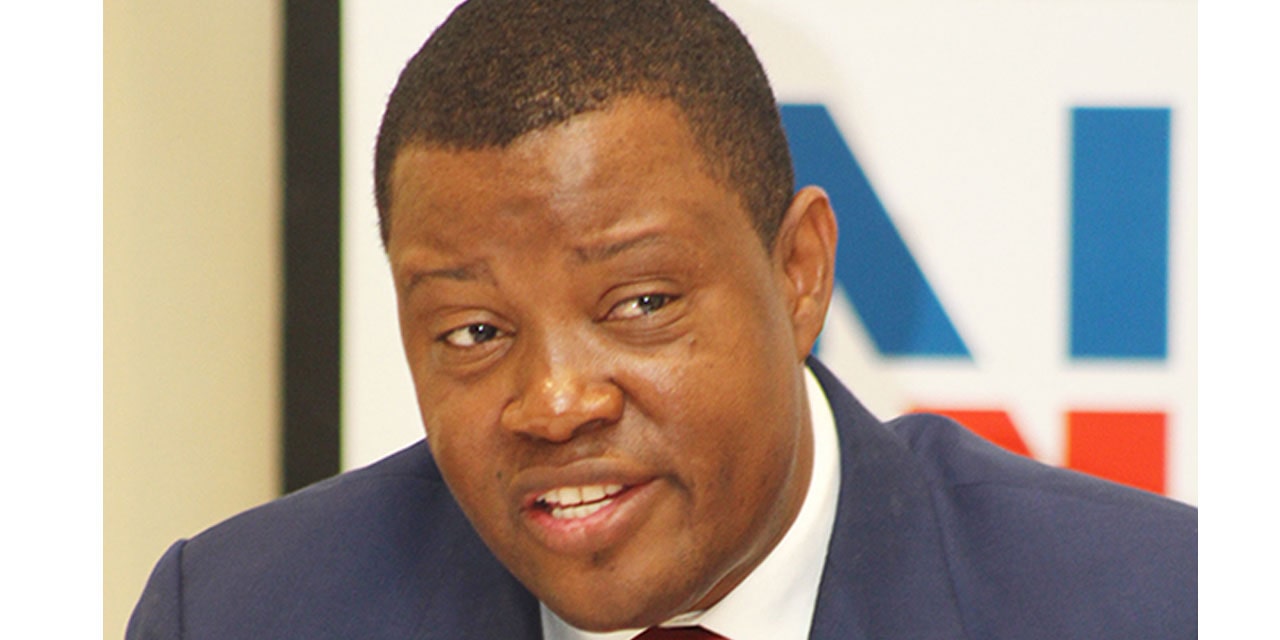Martin Endjala
The Minister of Finance, Iipumbu Shiimi today tabled the national budget. Presented under the theme, “Economic Revival and Caring for the Poor”, the budget attempts to be pro-poor, a move the official opposition labels an insult.
Popular Democratic Movement President McHenry Venaani has labeled the social income grant N$100 increase for pensioners, vulnerable children and disabled persons as an insult.
“What the Minister of Finance did to bring elders here in the chamber parading them for N$100, while this government spend N$650 million on a condom tender is an insult to the elders it is a shame”, Venaani said.
This follows Minister of Finance Iipumbu Shiimi’s announcement of an increase in social income grant by N$100 effective as of April 2022 during the tabling of the 2023/24 national financial year and mid-term budget.
This means that pensioners will earn, on a monthly basis, N$1400 and the disability has been increased from N$250 to N$1400 and vulnerable children received an increase of N$350 from N$200.
Shiimi said that as a government that cares and understands the pain and concerns of the nation, they ensured that social protection remained to be at the core of the livelihoods preservations he stated.
Meanwhile, speaking to the Windhoek Observer in an interview, the National Union of Namibian Workers Secretary General,Job Muniaro, congratulated the efforts made by the government, saying that the pensioners are the most vulnerable groups including disability and vulnerable children and that the increment couldn’t have come at a better time.
However, he noted with concern that the Bank of Namibia recently announced the increase of repo rate by 0.25 basis points to seven percent.
This Muniaro, stated as very draining and detrimental to the livelihoods of workers. It is further evidence that the government has failed to come up with remedial solutions to help uplift the lives of the workers, who they themselves are the main contributors to the VAT amongst other governmental levies.
As well as given the fact that the repo rate has increased sporadically within a short period of time, and civil servants only increased by three percent, “the same trend should also be understood when workers start demanding salary increments as the current trends in the country’s economy is not in favour of workers’ salaries at the moment, when we call for increment it must be dealt in the spirit of the increasing repo rate”, Munairo maintained.
He is therefore of the argument that, due to the repo rate increase workers are unable to compete with the economic market, highlighting an example of a worker that he knows, who used to pay N$10 000 on her homeloan loan three years ago but is currently forced to dish out N$14 000 as per the current repo rate.
Hence he is of the opinion that as much as the government cares for the pensioners same should be applied to the workers, for their livelihoods have been badly impacted.
Meanwhile, this year’s budget saw the Ministry of Education being allocated the largest chunk of the budget to the tune of N$ 16.7 billion from the total budget of N$72.7 billion.
Another significant allocation of about N$ 600 million went to the National Statistics Agency given its halted census which was slated to take place last year, but didn’t due to a lack of funds. The Electoral Commission of Namibia received N$259 million.
Furthermore, the Ministry of Higher Education received N$3.8 billion, the Ministry of Agriculture Water Land and Reform was allocated N$1.7 billion, and the Ministry of Gender Equality, Poverty Eradication Social Welfare received N$6.4 billion.
Moreover, The Ministry of Health and Social Services received N$9.6 billion, the Ministry of Urban and Rural Development received N$1.8 billion while the Finance Ministry was allocated N$5.8 billion, the Ministry of Defence N$6.2 billion and the Ministry of Home Affairs Immigration, Safety and Security received N$3.5 billion, while the Ministry of Environment Forestry and Tourism received N$595 million.




